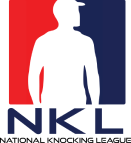Speaker 1: (00:02)
Bill, Can I help you?
Speaker2: Hey listen up, I’m bringing you the best content to ever exist in the door to door industry from sales leadership, recruiting, impersonal development.
Speaker 1:
Why would I need that?
Speaker 2:
Because never before have we been able to collaborate with the top experts in their industries, sharing their secrets and techniques and what makes them the best.
Speaker 1: Wait, who? Who are you?
Speaker 2:
I’m your host. Sam Taggart, creator of the D2D experts in D2Dcon. Is there a place we can sit down?
Speaker 1:
Well come on in.
Speaker 3:
Vanilla is the fastest way to increase your Google and Facebook reviews through text with a 98% open rate. Vanilla reviews is the simplest cheapest way to interact and engage with customers. Visit us at vanillagood.com for more information.
Speaker 2: (00:48)
Hey Everybody. This is Sam Taggart, your host with the D2D podcast. And I’m here with I’m here with Mike Brand who’s done this for over a decade. technically we’re family. We’re like second cousins once removed and anyway, long story blood related, definitely brothers.
So Mike is the director of sales at Vivint solar over all of the San Diego-Ish area, right? Southern California.
Speaker 3¨
Yup. So cal goes from, um, Visalia down to Chula Vista.
Speaker 2:
Oh, this area is considered, it’s okay. Um, well my cousin works there. He’s actually part of no kick. NORC, Alba, I count it. Yeah. Ghana. So over about 70 ish dudes depending on the given day. Right? Yeah. So within my band there’s like three offices that I personally work really close with that half about 70 sales reps in them. And then in southern California probably had about 300. And you helped train a lot of those, but you kind of have your own little band.
Speaker 4: (01:40)
Yeah. So we have three or four guys that run southern California that collaborate and help manage those three or four guys. And then I specifically worked really closely with those three offices that we talked about earlier. That’s awesome. Yeah. So privileged to have you guys, you, you on the podcast, I mean, obviously we’re sitting in here in San Diego, in his house, actually Improv to Easter is Easter Sunday. We just got done playing Easter egg hunts, basketball, uh, had a great dinner, some ham and a now I was like, let’s freaking do a podcast. Why wouldn’t we? This is podcast-worthy. So let me, let me ask kind of how’d you get into the industry? You were in your early twenties, like who recruited you? How’d you start? Sure. Was delivering pizza first and foremost. This is awesome. Pizza delivery stories. This is my third one on a pod. Pizza delivery.
Speaker 4: (02:28)
If you want to recruit our round table pizza, I’m going to sit, maybe he’s looking for a better opportunity, I’ll tell you that right now. Yeah, so it’s delivering pizza. I did roofing for like six to 12 months. Um, and then one of my good friends from high school is out for the summer in the middle of summer selling security for Apx and he said, Mike, you, you kick ass the shop. Come out, come try it. And so I drove from Sacramento to San Jose. I’m actually went out middle of summer, start knocking. First two days I’m in flops. Never knocked the door before cause I saw the other guys in the office in flip flops and like, hey this looks fun. You know, you could do a job in flip flops outside. Obviously 12 get dropped off in hood, 12 hours straight each day. Nothing. Not even in a house.
Speaker 4: (03:15)
Know, just get my, just get whooped. I love these stories. Kick good cause mine was opposites. I liked the ones that’s like guys that for you that are sucking, getting your face kick day. There’s hope. That’s part of it for sure. So I walked so long and so far I get my back hurt, you know, I’m like 21 years old, you know. Um, anyways, next, the next money, that was a Friday, Saturday, the next Monday get my first sale. And it was like, you know, the best feeling in the world. And I realized like, wow, sales is amazing. I sell each of my next like five or six days. The office shuts down, moves to West Virginia. I’ve been with the company a week, you know, and I’m making 400 bucks a sale. I’m like, I just made 2,400 bucks, you know, technically I only got paid 1200 and I actually went back and went back to Sacramento.
Speaker 4: (04:04)
I’m not moving to West Virginia with a bunch of guys. I just met, you know, um, I think Todd Peterson still owes me the backend for those six alarm accounts. So I gotta if anyone has his number, let me shoot him a text. Yeah. Tag Him. Be like, Todd, my belt a hundred bucks. That’s right. I can write whatever they can keep it. But, um, I went back, I actually started working for a monotronic Steeler in Sacramento and that’s where I really like sunk my teeth in to door to door and sell and security. And that was, you know, six to nine months of just grind. Um, and then a guy that I met originally in that APX office, um, is from Sacramento, which is where I went back to, to sell for Mantronix and he heard that I was still selling and, um, he started recruiting me and got me back to come on.
Speaker 4: (04:49)
That’s the next summer in the summer of 2010, um, to actually start in the preseason. And my goal is to be the number one preseason rep. Um, the good news is no one sells preseason for APX. I didn’t know that this was pre. Yeah. And so I didn’t know that. And so it was actually a good goal because I went out and sold every single day. Like probably never sold more than one a day, but I’m like getting my one every day. Ended up with a hundred preseasons going into the summer. Um, had a mediocre summer, like a find summer. I sold a hundred or whatever and, and finish the year with 200 funded accounts. And so that was like my first full year, 2010 summer with Apx. I switched to vivant I think that summer or early next summer. Um, it’s also where I met my wife. She was my manager. Yeah. She was slinging yet best. She was the best manager to make out with by far not even close. Yeah. You guys didn’t even hold a candle.
Speaker 4: (05:45)
Oh, that’s awesome. So anyways, so that, so that, that was my first summer, um, went back, got married, um, sold security for two more years. At the end of the summer of 2012 I over to Vivint solar, which at the time where there’s four or five offices nationwide. So kind of right place. Right time. Started out on the east coast, um, opened up Vivint solar’s first New York market in early 2013. Um, that grew over two, three years. This, this is just booming, you know, so two, three years. We grew that to 10 offices. Um, and then we got pregnant with number three and decided to move back to where from, I’m in the middle of 2016 so I brought us here to San Diego and we’ve been out here for two and a half years now, almost three coming up on three years selling solar in San Diego for a villain solar. So it’s been a fun ride. 10 years goes by quick
Speaker 5: (06:39)
champ, Jim. And I mean like I come over here and I was like, when was the last time we saw each other? And it was like look, seven years ago, seven years ago, like guys, if you’re listening this podcast, Mike was the one recruiting me to go to visit with crazy. I’m like pre me even showing up to me that’s like, wow. Anyways, so let’s kind of jam. So today I want to talk about really culture, uh, the thread. So if you’re listening to this podcast or watching this, uh, today we’re going to jam on kind of what keeps people motivated, what keeps people consistent instead of having, you know, in sales we call it like commission, you know, you’re living commission, commission check versus paycheck to paycheck. It’s like you’re living just deal the deal. And I feel like a lot of times, especially in solar roofing, kind of bigger ticket items where it’s a slower sales cycle and you’re making a bigger commission per deal, a lot of people kind of end up in this complacent stage. Yeah. Kissing anything. I had a big week, a big month, whatever. Um, and I think one thing that you guys have mastered and done really well, obviously running lots of teams, lots of sales guys is just the culture of consistent performance and you know, just getting guys to go out and hustle. Like I think that that would be a really cool topic. So it was kind of start with that.
Speaker 4: (07:52)
Yeah. And I think, I mean, how many times do you see a guy come in to any industry and just blow it out of the water for one quarter and you’re like, this guy has the next, he isn’t the only one, you know, and then the next quarter disappears, like just absolutely disappears off the face of the earth. Well, and you’re like, what happened to that guy? Happens all the time. And so that’s, that’s a constant struggle in this industry. And I think, so we’re just talking about this topic, um, recently, um, kind of as a director group and one of the things that we really focus on is tying everything to a bigger vision. And so there, there’s three things. Um, you have a bigger vision and that’s kind of like a two, three, four, five year plan. You have your goals that fit into that vision and then you have your daily habits.
Speaker 4: (08:38)
So you have vision, goals, habits. I think for a lot of guys, they start with their goal, right? They have, everyone has like a yearly goal. Like, I want to, I want to make, yeah, I want to make this much a year, or I want to, you know, this quarter I’m starting out and I want to be the number one sales rep in the quarter. And that’s their goal. And the problem is, if that goal isn’t tied to something bigger, when you, when you reach that goal, then what? No. Then you’re, you’re, you’re back to feeling like I accomplished what I set out to accomplish. And you’re complacent and that complacency just, it sneaks up and all of a sudden it’s, it’s there, right? Yeah. And so when we talk about vision, we talk about, okay, where do you want to be three years from now, four years from now, five years from now?
Speaker 4: (09:18)
Um, what do you want your life to look like? You know, how much money do you want saved? You know, do you want $3 million in your account, um, earning you money? Do you want to own nine investment properties? Okay. And how long is that going to take? Well, then you break it back down. So, okay, if my vision is to have $3 million in the bank invested in equities and in real estate so that I don’t have to work another day in my life and I want to do that in the next five years, then each year I need to live off a 100 grand, which means I need to save 200 grand or so on and so forth to hit my goal. Right? And so then you break down what, where do you want to end up? You break down your yearly goal on what, what you need to hit financially and then to to dial it in and stay focused day to day, week to week, month to month.
Speaker 4: (10:07)
It’s like, okay, I have my yearly goal now what’s my quarterly goal, you know, tied to my yearly goal obviously. And then my weekly rhythm, weekly rhythm. So now I have my weekly rhythm, right? Cause we’re talking, you’re going to do something year round. We’re talking about to, to the roofing guys and all the, all the guys that are the around, right. What’s my weekly rhythm? You have to know that number. Okay. So my weekly rhythm, I need to close five solar deals every week. That’s my weekly rhythm. I need to do that every single week. And I factor in like two weeks of the quarter. I’m going to be off for whatever reason. I have a family thing or we’re going on a on a vacation or whatever it is. So like I do it off an 11 week quarter or whatever. So I need to hit five close deals.
Speaker 4: (10:49)
Now you break it down and you’re like, okay, day to day, what are my habits that I need every day to hit my five deals? So for me personally, I need to wake up at 5:30 AM okay, I need to read my scriptures, I need to work out, I need to eat a healthy breakfast. Those are like my first, my daily habits. And then I’m on the doors from 1:00 PM to 8:30 PM every day consistently nine to four on Saturday. Right? And so I have my weekly, um, my weekly habits, my daily habits. Um, and then you have to use tools to manage yourself. So the tools that I use, there’s an app called streaks, streets, streets. I think it’s like four bucks or whatever. But you can basically track your daily habits and every day you wake up at five 30, you mark it complete and then you can look back the last 30 days and see how consistent you’ve been.
Speaker 4: (11:39)
And so that kind of, it followed the gun. Instagram, Charlie, uh, he’s like, I’m on a women’s true. Yeah. It’s like his whole thing. He’s like, I’m on a winning streak and you know, I think he lost like 200 pounds or something like that. It was about, it was all about your streak. So I like this. There’s an APP that I gamify it gamifies it. So does it and graph it out shows you, okay, you’ve consistently hit this one and you can track different habits. Yeah. It’s so cool. You can jack up the 12 habits. Um, and then the other tool that I use personally is every Sunday night my wife and I’ll sit down and we’ll plan the week, hey, like some weeks are different. Like I have three kids under six. And so, yeah, I want to be consistently one to eight 30 on the doors every day.
Speaker 4: (12:20)
But real life stuff happens, you know, real life things come up and I need like my family’s first. But if I, if I’m going to miss four hours out of my, one of my Thursdays, I’m going to make up for that four hours somewhere else. Friday morning. Yeah. I’m just gonna figure it out. Right. But every week, cause I want to be in harmony with my wife on our goals. And so I, what I found is if I do that, um, then there’s less friction in our marriage. Um, and so it’s just a, it’s a, it’s a habit where every Sunday night we’ll sit down, we’ll plan the week, we’ll go through everything. And then my week, like tonight when we finish this podcast, I’ll take 20 minutes, my wife and I’ll know where I’ll be every minute of every day for the next seven days. And now I don’t have to think about it.
Speaker 4: (13:01)
That’s awesome. All right. So let’s hypothetically say you kind of get in the habit of coming up with other things that get in the way. You know what I mean? So this is, this is the common thing that happens with reps, right? Right. They, they always have something that comes up. So then they’re never catching up on that for hours that took off. And those four hours pile up to where it’s just like, ah, yeah, I only really work 20 hours a week. And that’s the habit. What would you tell that guy? So That’s interesting. It’s, it’s funny because a habit, whether it’s good or bad, the longer you’ve, you’ve done that habit, the harder it is to break. And so if every day you take a long lunch and get out at 3:00 PM or you like sit in your car, like manage your accounts are quote unquote manage your customers, you know, and delay knocking until 3:00 PM if you do that two days, three days, four days, five days, 10 days, the longer you do that, the harder it is to break that habit.
Speaker 4: (13:56)
Right? And so I think the first thing is to recognize it. So you have to do some self reflecting and at the end of the week be like, hey, was I efficient with my time? Okay this came up at 4:00 PM and instead of like sticking with my plan, I went and like met up with my girlfriend or whatever. You know our when cotton movie, I duNNo. I Dunno you guys. No, no but that, but that it’s, it’s a million things. I swear it’s, I’ve watched so many reps over the last few years and it’s like what? Like you drove what to do, what? Like pick your kid up for an oil change to then sit with him. You know, there’s like come on like figuring out a solution. It just, it has to be non negotiable. Right? So it has to be, if I planned, so if I, and I get fired up about this because if you plan your week at the beginning of the week, just do what you say you’re going to do.
Speaker 4: (14:45)
It just decide to be the type of person that, that does what you say you’re going to do no matter what. Yes. Just be that person. Um, and then when those things come up, you just have to have the discipline to say no. Like, I like, the reason I’m doing this is in five years I’ll never have to work again. Like if I do this the right way, my vision is in five years, 37 years old, I’m retired. I never have to work another day in my life. And so I might have to be a little bit uncomfortable. Yes. And I think that’s one thing guys struggle with. It’s like they’re so, they’re so worried or scared to be uncomfortable. Sometimes it’s hard to do what you say you were going to do because on Sunday night you’re like so strong. You’re like, I, I’m, you’re reviewing your goal and your vision and you’re like, yes, I’m going to make $1 million this year. Wine.
Speaker 5: (15:34)
See, I think a lot of people are good at that step. I think there’s quite a few of us that are like, yeah, I’d do that. Yeah. Yeah. I that part I got the, I can plan it out. Yes.
Speaker 4: (15:45)
Um, so yeah. So I think when it comes down to it, it’s just you have to take pride in being the type of person that does hard things and is okay being uncomfortable. Cause once you, once you flip that switch and you’re like, oh great, like I’m facing some adversity right now. This is the type of person I want to be like I’m going to overcome this adversity like this. Then you view adversity and you view challenges as an opportunity. Yeah. You just view it differently. You’re like, this is hard. Great. Like this is the type of person I like want to be is I overcome hard things and I overcome obstacles and I overcome challenges and so I’m grateful for that. So it’s just a mind, it’s a mindset. It’s a, you flip the switch on how you look at those challenges, you know, I love that.
Speaker 5: (16:30)
So what about like leading a teams, you know, you’re managing all these teams, you run your own team within this group. Um, is there any like consistency, cause there’s also leaders that have these ebbs and flows. It’s like I’m really fired up to go train. All my guys are getting the field with them and I’m, I’m running like what would you tell leadership to kind of keep a consistent habit? Any best practices, tools, training that you would want to give that leader owner, that guy leading a team? Sure. Um, I think so one thing recently we had a conference where we got to listen to Jesse Itzler plug, trying to get it for DDD con. So if anyone listens to this, hey Sam gets Itzler for DDD color. You don’t go, you’re crazy. I am trying to get him right now. So January we actually just got the dates. Yeah, it’s the third weekend in January. So anyway, there’s my, if you know him, I’m trying to like a for you not, I’m putting that in the university. Get Him, he’s on my top five and his wife. Let’s get them both.
Speaker 4: (17:30)
So here, here’s the point I’m making with leadership. And if you’re running an office or you’re an owner of a company or whatever, don’t get complacent in, in being motivated and learning yourself and leveling up. Like in other words, don’t be, don’t think that you got it all figured out because that’s what leads to complacency and leads to kind of that, that Arab, you know? But if you’re constantly trying to learn new things and think of new ways to motivate your team and you’re asking yourself questions, and this is from Itzler, you know how, if no one told me how to do this job right now, how would I do it? How would I motivate my team? Because that’s where creativity comes from. And if you’re, if you’re being creative and you’re thinking outside the box and you’re like excited to learn and grow personally, that energy will just go to your team. Like they will feel that from you. Yeah. And when you come with new ideas into the corelation meeting, again, people are gonna feel that. And if you’re going with the same thing you’ve gone with every week, the last 26 weeks, like try to run an office for four years and not learn anything new. You guys all hate you. They’re just like, Yep, here he goes, hey man, that story of five levels of leadership here is right.
Speaker 5: (18:49)
It’s been about 12 weeks is going to start on this one
Speaker 4: (18:52)
again. The law of half log dumb or whatever it is, you know, we all, we all have those trainings that we go back to and they’re good. But I think, um, to stave off complacency and to continue to, to grow and to be excited, you have to learn, you know, and constantly be learning. Like I don’t feel like I know anything. Like I feel like I barely scratched the surface on leadership, on sales. And so I’m constantly just asking questions and looking for material and trying to, to, to learn, you know?
Speaker 5: (19:20)
Yeah. And I think a lot of leaders, they feel like because they got the title manager, CEO, regional, whatever that is, that’s like where they’ve got it made, right? Right. Like, no, no, no. That’s where you just became the idiot and that’s where it’s time to start really having a dive into learning. You’re never there, you’re never there because I’ve watched some of the greatest leaders get complacent in their learning and all of a sudden it’s that speed of the leader speed of the team and everybody just passes them up or they feel like he’s not really giving me much anymore. Right. And then your culture suffers from that. You slowing down is that leader, right. So what are, what are some tools, is there any like best practices or or weekly kind of things that you do? Like how often do you meet as a team? Do you run like sales meetings or how often do you do that? What do you do? So
Speaker 4: (20:06)
do is we run sales meetings twice a week. We run Tuesday, Thursday.
Speaker 5: (20:11)
Is there a reason those days? I mean if you kind of calculate it, I’m sure you’ve trialed and errored different days. Like
Speaker 4: (20:17)
I used to do Monday, Wednesday, Friday, and it was a lot for guys. I think guys, especially in sales like autonomy and they like to have really big Mondays, guys like to get out early on Mondays. And so just for our team personally, I think every team’s different. Um, guys get out early on Monday typically and like have big Mondays and then Tuesday we recap last week and kind of um, keep everyone motivated going to the middle of the week and then Friday or excuse me, Thursday, um, get everyone re motivated to go through the weekend or whatever. So just kind of splits up the week. It’s too much. Um, we’re still getting in front of guys enough. Um, and then recently what we’ve been doing is every other Thursday going into like spring and summer in San Diego, we’ll just go do something fun. Okay. So like every fourth meeting or whatever, like last Thursday we’re at a beach and we hung out as a team.
Speaker 4: (21:03)
You’re meeting was more culturally connecting instead of like businessy. Right. Okay. I see. I think when you run a year round program, it’s important to, it’s like guys want to feel like they’re part of something bigger than themselves and feel connected to the team because they’re not just doing this for three or four months. Like these are the people that are in their lives like this, this will it to none. I mean, we went to a park, we had an east very current and you had what, six, seven of your team members there and their wives or wives and kids and they’re, you know, you made it like, and you and Tammy probably organize that. You’re like, Hey, let’s do some thing, right. Some, some kind of activity. Yeah. And it has to be sincere, right? Like in other words, that wasn’t like a team building thing.
Speaker 4: (21:43)
It’s like, hey, we have a good culture because we want to work around people that we like. And so we’ve built a team, um, that, um, of guys that we really like and want to be friends with. And so it’s always, it’s just really sincere and like we, we like those people. Like, we want to hang out those people, you know, so it’s not forced. So that’s another thing. If you’re building a team, look for people that obviously work hard and have integrity, but look for people that you want to be around. Like it’s your life, you know? And, and I think if you hire people that you really like, you’ll put more time and energy and effort into helping those people succeed than if you’re just like, ah, I give this guy a shot. Because I think that happens a lot in water. Like, yeah, if you’re, if you’re ever sang at the end of interview, like, Hey, like let’s give this guy a shot.
Speaker 4: (22:29)
Like, just do them a favor and don’t hire them because you’re not, you’re not going to help that guy. Yeah. You just won’t, you won’t do what it takes. You’re not going to do. And it takes, as the leader to help that guy, you’re doing them a disservice and find a reason to like people, like everyone has qualities that are really like, well, um, I really believe that. And, and find those qualities and make the connection with the people that you work with and love the people you work with and serve the people you work with. You know, I think, I think a lot of people, they don’t view it as that family environment, right? They’re asking for a culture. They’re asking for this comradery. Yep. Yet they’re not willing to actually like get real with those people and, and make a genuine, you know, they’re like, I’m the boss.
Speaker 4: (23:08)
I want to hire a bunch of canvases. I hear this all time on hire a bunch of Kansas are going to be a bunch of money to sit on my throne and I’m going to crack the window. It just doesn’t work. I mean, I say it kind of like that, but, but in the reality is it’s like that’s where a lot of people think, I’m going to build this door to our program and I’m just door to ourselves too. I’m going to, I’m not, I’m going to recruit so then I don’t have to do anything. So I can like let them be in the trenches. It’s like, you know, instead of like, no, I’m a higher on my buddies to do this with me. Right. You know, instead of going on Craig’s list or you know, like finding some dude out of jail, they come knock doors, right? It’s like no, you’re hiring talented
Speaker 5: (23:45)
people that you would have hung out with had they been part of the job or not. You know what I mean? And Anyway, I think that’s super good.
Speaker 4: (23:52)
Yeah, I think you hit the nail on the head too. If you’re ever saying or thinking, okay, like once I hired this many people, I can stop doing the work. It’s just the wrong mentality. Like no one respects someone that isn’t willing to do the work and like be in the trenches, especially in door to door. If you want to run a successful team, if you want to run a top team in the industry, you have to be with very few exceptions. I’m the hardest worker in the room. You have to outwork everyone and show them how to do it. No one wants to be told how to do it.
Speaker 5: (24:23)
So this, this is interesting guys. If you’re listening to this, I think people don’t fathom, you know, off camera where Jay, we’re jamming and you just said it. My goal is to sell five every week. That was the first thing you said. It wasn’t, my goal is to get my guys to sell five each every week. It was, my goal is to sell five every week. I manage 70 dudes directly on me. I helped 300 people. I’ve done this since 2009 I, you know what I mean? I’m, but at the same time, you’re also one of the few that saying, Oh yeah, I’m going to retire healthily at the age of 37 right. You know what I mean? Like there’s the, there’s the two combos that can go together where it like I’m a retire when I’m 35 yet they don’t want to do the work.
Speaker 5: (25:09)
Right. You’re saying I’m going to throw it out in five agree week with my people, lead them from the front and get there and do it with them and show them like it was so funny. So I’m out here visiting a buddy of mine who’s under you and works with you. And he’s like, dude, Mike took me out, threw three in in a day and I was like, holy crap. Like just teach me how to do that. And it’s like, but you’re sitting there as the Dee Dee, you know, this district manager that, you know, this, this training guy that’s like so high up in the company, had been there forever since, you know, one of the ogs in this massive, the largest solar residential in the country. And yet you’re still taking the new guy out and showing them how to do 300 debt. You got to do it. And that, this is the point. You can’t substitute that. And everybody’s like, well, is it broken? Like there’s gotta be another whim. Like
Speaker 4: (25:56)
there’s no shortcut. There’s no, if you’re looking for shortcuts or you’re looking for the easiest way to make more money, there’s just no easy, there’s no secret, there’s no easy way, you know, go talk to a ton of people every day and learn how to sell. I can and do it as hard. And as long as you can. And it’s like there’s no secret sauce to it. I’m actually not a good salesman. I’m really not
Speaker 5: (26:20)
you guys people, he’s very humble or use one of your best year in a, you did what, three 50 something like that. Right around there. Yeah. Like God, she’s really good solar. Where’s your best month or week or,
Speaker 4: (26:32)
um, that’s a good question. Best quarter I installed the 53 or something like that.
Speaker 5: (26:37)
Yeah. A quarter. Nobody, I don’t know. Something in a week, right? Yeah. You have to deal with people. But I mean that’s the thing. It’s like people don’t, you’re really good at sales, so learn how to sell because I think a lot of people try to shortcut that.
Speaker 4: (26:51)
Right? Yeah. And we have to. Yeah, of course. And what I meant by that, um, just to be clear, is that I didn’t invent anything. In other words, everything that I do on the doors are in the house. I learned from someone who’s better than me. And so if I have one piece of advice for like guys in the industry or in door to door, in sales at all is reach up. There’s someone doing what you want to do right now. There’s someone doing what you want to do right now. Go seek that person out. And the craziest thing is the people that are most successful, they’re the most willing to help. It’s like the guy that’s like moderately successful, like doesn’t have time for you, but the guy that’s like ultra successful, he usually got there because he had a mentor. And so when you go to that person, you’re like, Hey, I’m super hungry.
Speaker 4: (27:36)
I want to learn exactly what you do. I don’t want to reinvent the wheel like you’re the best. I want to figure it out from you. Nine Times out of 10, that guy, I’ll be like, yeah, I’ll help you come shadow me or come watch me in any industry, any industry. But a lot of times we won’t call that guy or make that call because they’re like, oh, he’s too busy. He’s, he’s too busy. But guess what? The guys that call me cold call me, they get my time cause I know they’re serious. I know that they’re like willing to put in the work and they’re not scared to like go do it. No,
Speaker 5: (28:05)
no, that’s a good principal. That’s where I get advice. I like that. Write that down people for us. And I just write that down
Speaker 4: (28:12)
and that’s another thing. It’s like, you know, we just came from that conference that’s fresh in my mind, but he said his emo, like he, he would cold call CEOs. Like in when he was building his private jet company, you’d pick up the phone and just cold call people and he just wasn’t afraid to fail and wasn’t afraid to like get out of his comfort zone, you know? So I think it’s important. That’s awesome. So yeah.
Speaker 5: (28:31)
What about like act, uh, meeting structures? Like when you run your Tuesday meeting, I’m curious like how to, how to motivate, how to, how to get guys excited. I mean, this job set sometimes, right? There’s like, it’s monotonous. Sometimes it’s kind of up and down. Like what are you doing? You’re meeting to get things organized, structured, motivated. Is there anything that you’ve recommended, like you’ve learned over running four years of dumb boring meetings? Yeah. Well it’s crazy, right? Because there’s only so much you can do. Exactly. I’m curious like have you kind of mastered or figured out like best practices? I mean obviously ran a lot of meetings. I’m just wondering, it’s like dude, when we do this or when we’ve done this or I love this.
Speaker 4: (29:09)
Yep. Yeah. So I think there’s a structure and then there’s something that’s outside of the meeting that keeps guys motivated, having fun. So I think the structure of the meeting is this your, you’re going to review numbers for accountability. How do you review numbers when you just do it twice a week. So you’re going to do it in a fun way. So what we do is on our Tuesday meetings we go through numbers for last week, how many, how many accounts you created, how many deals you close. And then we just do claps, right? So just keep it like upbeat and fast and quick. And like guys, guys are read off their own numbers asking for does say last week would you finish with what’d did you finish with? And so we go through numbers and then what we do is we have a guy in our office, his role is to go through recognition for last week and update on where people are out for the quarter.
Speaker 4: (29:54)
And we just like give a ton of recognition. Okay guys, they love wreck. Everyone lives on recognized obviously. You know, instead of like criticizing people, we never like bring people down. Especially never ever, ever, ever bring someone down in front of everyone else. Like if you have criticism, do a one on one and when you have praise do in front of everyone because that’s like a really simple prisons principle. If you’re leading a team. So we go through numbers, recognition, then we all always, let’s talk about that, cause I’ve heard both sides of this whole uh Huh. Criticism. Not necessarily criticism. Let’s say I didn’t sell last week. What happens? You still have to say you did zero. So you, there is accountability. So it’s like, Sam, what’d you finish the last 20 zero zero and the next guy, the next guy. That’s enough. That’s enough. Yeah, that hurts enough.
Speaker 4: (30:39)
And then we’re going to meet with you after the meeting too, right? If you like, it didn’t sell for a week. You print it at work. Let’s figure out, let’s meet for 10 minutes after the meeting with those guys and like get them dialed back in and figure out what’s going good. What’s going on. Okay. You don’t have, and that’s kind of like, okay, when we’re talking about meetings or running a team, you have to have a personal relationship with your guys, right? So the way that we break it down, not to get off topic is we break our team down into squads. So we run a team in San Diego of about 35 to 40 guys. Okay. Right now we’re proud about 35 one person. It’s impossible to run a team effectively of 35 guys. It’s not possible. There’s not enough time in a day. It’s like the seal team.
Speaker 4: (31:17)
Six types. Exactly. Dot. So we break it up into pod. So you have guys that are leaders. We have uh, two or three district managers in our office and then we have squad leaders that run squads. Right. And did they get paid or anything or, yeah, just the responsibility. Sure. There’s compensation for that. Um, depending if they hit certain personal metrics and we won’t get into like the that they’re there is because some companies or some teams, I’ve seen it where they’re going to get paid. It’s just like you’re developing yourself as a leader. So I don’t even think you necessarily have to pay all the time for those that are listening. Like I just think there has to be some kind of like incentive. But at the same time, I actually, what I would say is this, if I were just starting and I was in the solar industry is six to 12 months and my manager gave me the responsibility to run a squad, I would do it for no pay and I’d be happy about it because number one, I’m learning to become a leader.
Speaker 4: (32:13)
Exactly. Number two, I’m going to run the best Dang squad in on my team and I’m going to act as if, so I’m going to act as if I’m a pilot. I’m a, I’m a leader and I’m a district manager because guess what, when the next spot opens up, I’m going to be the clear choice. And so I think guys sell themselves short when they’re like, nevermind, I’m not going to get compensated. Like I’m not interested in helping out or doing more. Like you want to be the guy that always adds more value than you take.
Speaker 5: (32:40)
And that’s the guys that win. That’s the guys that move up in the space. That’s the guys that recruit. Those are the guys. It’s like, oh, can I leave my current manager to come work with you? It’s like why? Because that current managers, not that guy. Right. So to sense write that one down,
Speaker 4: (32:57)
add more value than you and you then you take, right? So just going back to kind of the, the, the meeting structure or whatever. So you’ve got numbers, recognition and we always have a dialed in sales training. So someone that was told two or three days before to prepare a sales training like keynote or like a really solid structure that gets well repaired and well, well prepared and well run. And then we just end with a motivation will usually pick a guy that has been hot like the last week or whatever and he’s really feeling it and assign like a topic to maybe say, Hey, talk about your experience. You know, you really struggled the first three months, but now you’ve really picked it up. Like talk about that a little bit. Or Hey, you’ve been in the industry five years and this is like your best quarter or you’re, you’re feeling it, like talk about that.
Speaker 4: (33:38)
And so we just, we try to keep those unique where it’s not just like play, play youtube video. Yeah. Yeah. I mean like let’s keep them, keep them unique and keep them fresh. Um, and so we just do that twice a week I think. And just to go back to what we talked about earlier, I think the most important thing is have a personal relationship with your guys and make sure that they have a really clear vision of where they’re heading. If you don’t know what you’re trying to accomplish in the next three to five years with this job, you will get dragged down by the day to day emotions of this job tar. But if you have a longterm three to five year plan and you’ve broken it down by year, quarter, your weekly rhythm and then you have habits to go along with that. I think that’s what really drives guys, you know, just having that vision. I love that.
Speaker 5: (34:21)
Do you on Thursdays, is it any different than Tuesdays or is it just kind of the same? I mean like you said every other Thursday or everyone’s while you’re doing it, the activity, but like numbers or recognition. Do you have any like clubs? I know like Vivin solar has that the league or there any other like hat clubs are, I know we’ve done different things. Do you have anything like that that’s kind of unique. So I mean that’s one nice thing about working for you.
Speaker 4: (34:47)
Solar is obviously they’ve been doing door to door for a long time. And so on the corporate marketing side, they have all the competitions throughout the year. Um, they kind of have the culture of like how you level up within the company already set up. And so we’re able to use that structure. So the League essentially is just every seven permits you hit in a quarter. So seven, 14, 21. Um, for, you know, solar permits, you level up, you earn different swag and different gear, you get recognized and then, um, four or five times a year Vivent runs a different competition. Um, and that’s something that we, every meeting, if there’s a competition, we’re gon going, we’re talking about that, you know, they do a one on one competition, they do a four vs four. They do a team versus team, like nationwide competition. And so almost there’s some competition going on.
Speaker 4: (35:39)
Yeah. Um, and then we’ll, do you know, the standard thing is every Saturday we have like sales incentives. Like, just within our office and things like that. But, um, the sales marketing team does such a good job that we don’t do a ton of it just like as a team because it’s so company centric. And that is something that a lot of people, if your investment, you should appreciate it more if you’re not like figuring out ways to do that in your own way. Right? I mean, if you’re five minutes older company, it’s like, how do you, how do you come up with the competition? It’s inciting, it’s this different unique creative that gets people excited to, to pin them up against each other. Um, you know, I think a lot of people, they,
Speaker 5: (36:22)
they’re just like, yeah, yeah, go, go out this week guys. Good luck. See you next week. You know that, well, what motivated
Speaker 4: (36:27)
salespeople, right? It’s like short term pops, right? Like the reason we’re in sales, a lot of us is like, we’re very like add and can like focus for a little bit. Yeah. So whenever I see guys like rolling out quarter long incentives or even like multiple weeks for incentives, I’m like, dude, that doesn’t work. You know, like give me a three day incentive like Thursday through Saturday this week, this is what we’re going to do. Um, and then have those quick pops every week and keep it fun and exciting and then yeah, be creative like Pitt guys against each other and make it fun and competitive. Um, and you know, you have to come up with, if you’re like a smaller company, you don’t have that sales marketing team like doing that for you. You have to have some type of competition. Yeah. That makes it fun for guys.
Speaker 4: (37:13)
When it’s fun for guys, they stop thinking about work and they’re like, you just in their own world out there competing and knock on doors till nine 30 cause it’s fun. Yeah. You know what I mean? It’s like if you’re not going to knock doors till 9:30 PM because you want to make money, yeah. You’ll, you hit a point where it’s like, I want to go home and be with my family or whatever, you know, but it’s like if you’re trying to beat the guy next to you and you know you need one more sale and you get it, you’re on top of the world and you go home that night and it’s like not only did you make more money, yes. But you like loved your job. Like I can’t believe I just want a 56 inch TV. Yeah. And I think a lot of leaders, they need to embody that more. You know what I mean? I think they need to recognize like as a leader, your people are itching for that. Right? You have to be the one that gives it to them. They want it, they want it. And I think sometimes people get lazy or they feel like, oh, I’ve got so many hats I got to where I gotta like make that a priority. Like, and you’ll see them, the numbers
Speaker 5: (38:13)
go up and just will. Um, okay. So we’ve got to wrap up. But one, one last question and honestly, thanks Mike for doing this. I know this is like Easter Sunday, like, hey, want to do a podcast? I’m super add live. I love it. Um, no, but it definitely podcast worthy if anything, like there’s a lot of people that shouldn’t be on this podcast in numbers in the you. So one,
Speaker 4: (38:36)
one question I ask everybody, uh, at the end is what, what’s one piece of advice in a nutshell that you’d give the door to door industry if you give them, like one piece of advice would be about anything. What would you give up? Be All in? I think, and I am specifically talking to people that are in their first three to six months. Yeah. And there’s so many people that come in to the door, door industry and they don’t commit. They’re not all in. And so my piece of advice for everyone that starts like within our region is set a date, 12 months from when you start, give yourself 12 full months before you even pull your head up. And when you do that, when you really commit like 100% like I’m going to do this for 365 days as hard as I can. When you come to those challenges or those obstacles, instead of making excuses, instead of looking at your backup plan, your brain, it’s only focus is finding solutions and finding a way.
Speaker 4: (39:38)
And like our brains are amazingly powerful tools that we under utilize because of our lack of commitment. And if you, the reason I’ve never left vivid and I never will leave is it actually doesn’t even matter the company. We’re wherever you are. Just if you’re 100% in your mentality is different. Yeah. It’s not like you’re always looking over your shoulders and what’s right or not. My easy way out of this, and I think it happens so often, I watch people switch around, bounce around, move offices, companies, industries and jobs. Yeah. Jobs because they sit there and they get uncomfortable with what they’re in, right? And then they’re just like, ah, this is hard. I had a guy, he’s like, I get hit up all the freaking time. Every time, every day I see him, I’m looking at this industry, or if you were to go do an industry, what would you do?
Speaker 4: (40:29)
Or I want to switch companies, like, where should I go? And I’m like, I simply ask them. I’m like, well, first off, are you stuck and where you’re at, right? I mean like, right. Like you’re going to suck wherever I send you. So yeah, because you can’t change the mindset of, right. Just buying into where you’re at, be all in, be all in like does that come in and put your head down? I love that. Don’t pull your head up for 12 months and then see what happens. And at that point you’re sitting there going, oh, okay, got it. Yeah. And if you, if you reevaluate at that point, it’s like, that’s fine. I picked that date 12 months ago and so I’m going to take a week or whatever and reevaluate where I’m at. Am I making the money? Am I in the right industry?
Speaker 4: (41:06)
Am I in the right job? Whatever. But like you gave it a 100% and when you hit those walls you just knocked through him. Like you just knocked them over. You didn’t, you didn’t back off or go do something else. You know, I love that. And it’s like those, that fast forward, cause I’m sure over the last 10 years you’ve had years where you’re probably like, man, I can only just one more year, I’m going to do this for, you know, I’m, I’m moving to another job. Like, you know what I mean? Am I right? Like have you ever had those thoughts of like, um, yeah. You know, I think it’s interesting cause I, we were talking earlier about, you know, I don’t, I don’t think are very good sales person. I think I’m ultra consistent workwise and work ethic. It’s like I’m five to six days a week, six to eight hours a day and I’m, I’m there, you know?
Speaker 4: (41:47)
And so I actually don’t, I don’t feel that a lot, like a one more year type thing because I’ve found a rhythm and I’m committed to my vision. Like, I know in five years I’ll never have to work again and I’m happy to do this. Like this is dude, we’re outside and knocking doors, talking to people in the sun like it’s not a hard job. It’s only hard if you make it hard. I was telling somebody that hasn’t been here, like I was watching this guy narrowing roofs and I’m like, that’s a hard job. Yeah. I’m like, I don’t want to be up there hammering. Yep. Can on a roof and maybe fallen off physical labors. I’m like, that sucks. Right? I don’t have it sucky. He’s probably looking at me going, I could never do that. If this it just one more thing before we wrap up.
Speaker 4: (42:27)
If this is a hard job for you, it’s because you, you’re not all in you, not 100% committed and you’re making too many decisions each day in each week and it’s causing you mental fatigue. I know. No matter what, when it’s 1:00 PM I know where I am every day. It doesn’t matter and I’ve, I have this rhythm Saturday morning at 9:00 AM. Guess what? I’m at an appointment every Saturday at 9:00 AM there’s no decision like I don’t have decision fatigue because at the beginning of every week I make my schedule. I know about the hours I’m going to work every week for the next five years. I’m good with that nugget and then Sunday I plan it and there’s no, there’s literally no decisions. Like my alarm goes off at five 30 I’m going to wake up. You know what I mean? Should I wake up today or not? It’s like an to say that I wake up at five 30 day 1:00 PM I’m on the doors.
Speaker 4: (43:16)
It’s just it. There’s no decision to be made and so you don’t get tired because that, that’s why you get tired if you’re exhausted, it’s decision fatigue because if you’re wondering every day, if you should go knock the door, by the time you even knock the door, it’s 2:00 PM or 3:00 PM or 4:00 PM you’re exhausted already cause you’re like you’re battling with yourself. Yeah. Your brain got, we’ve all been there. I 100% oh I don’t know how to work today. I don’t know how you call it. I love it. This decision fatigue, done. Write it down. I mean, that’s just a real thing. Well Dude, I appreciate you just being on the show like this has been awesome, and if you didn’t get any nuggets from this, shame on you. If you made it to the end of the podcast, share this with your friends, your family tagged my tag, Ddd podcast, and a dude. Pleasure. Thanks. Awesome. Appreciate you, man. Buyer so much. Love























